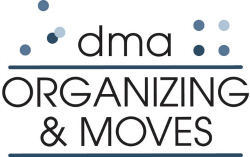ADHD and Relationships: A Primer

In our experience, we often run into couples who face the challenges of ADHD within their relationship. Managing a household is challenging enough but without effective communication, decision making is compromised – potentially derailing the organizing project.
Three main criteria that define ADHD:
- Inattention
- Poor Impulse Control
- Hyperactivity
Any person would have a different mix of these symptoms and a different intensity of the behaviors. Because ADHD is often misunderstood, people with ADHD often face a barrage of judgment and criticism about their behavior without receiving credit for the benefits their style provides.
Here’s what we learned:
- Tension increases when couples don’t understand each other
- Navigating a relationship with a person with ADHD requires understanding what ADHD is about and how it manifests for your partner in particular.
- People with ADHD can learn to manage inattention, impulsivity and hyperactivity that may be affecting the relationship.
- If a person with ADHD commits to trying to learn new skills, it should be from the perspective of wanting to improve the quality of their relationship, not from the perspective of trying to be somebody they’re not.
This work for couples is not about being right or wrong, but about being understood. Couples need to learn to acknowledge and accept each other, not try to fix each other. Having false expectations of each other will create conflict. Basically, relationship success is based on connection, friendship and mutual respect.
What do you do about it?
Develop understanding and compassion for each other. One way to do this is to create small and large opportunities for connection. Each successful connection is like putting money in the bank to amass capital for when things aren’t going so well (like when the ADHD behaviors are particularly challenging.) See the resource section below to find out about Love Languages.
Noted relationship researcher John Gottman has determined that there are 4 key behaviors that will sabotage a relationship. Here they are with their antidotes:
Being Critical – the antidote is: Complain without blaming. Use “I” statements to express your feelings and desires.
For example, instead of saying, “You’re always late!” try “Being late really stresses me out.” Or instead of “You’re not listening to me!” try, “I really want to share this with you.”
Defensiveness – This is a form of self-protection. Taking responsibility for your part in a conflict (even a little bit) can diffuse tension.
Contempt/Sarcasm – If you tend to make statements from a position of superiority, combat this by: Actively use positive affirmations, build a culture of appreciation and respect in your relationship.
Stonewalling – This usually happens when the listener feels flooded, gets overwhelmed and shuts down. An antidote: If you are frustrated or overwhelmed, take a break for at least 20 minutes to de-stress and agree to reconnect after that.
With all these resources at hand, there is hope. Though it requires effort, the benefits await. Harmony in the home is the foundation for an organized and happy home.

